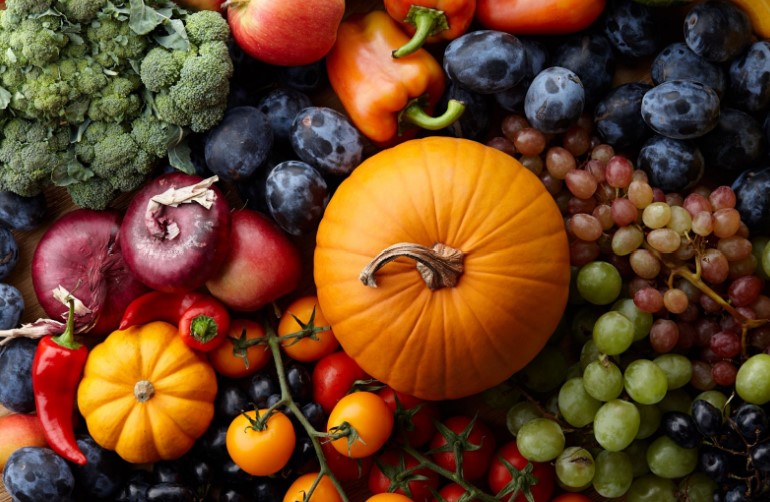
Buying Locally and Seasonally: How It Benefits the Consumer
Thanksgiving is coming up, which is an important American holiday that focuses on food, giving thanks, food, gratitude, food, and, of course, food. As we think about how grateful we are, we should also wonder where that turkey came from this year, and who grew the corn. Buying locally and seasonally are two ideas that go hand in hand when it comes to Thanksgiving, even if they are slightly different in practice.
Buying locally is the process of buying food, focused on fruits, vegetables, and other farmed goods, that are grown and produced close to home. Locally grown food looks and tastes better because they are coming directly from the farm to you, rather than traveling across the country (or multiple countries) to get to your table. They are less likely to have preservatives and more likely to keep their nutritional value better than your average grocery store foods.
By supporting local farmers, there are some benefits that don’t just have to do with the food. Local food can support local families who are growing the food and build community between the consumer and the farmer. By supporting local farmers, farmers are less likely to sell their land to developers and maintain open spaces in your community. The American Farmland Trust confirmed that local farms contribute more in taxes than they require in services, meaning that buying local actually keeps taxes down. Finally, well-managed farms support the local ecosystems within the environment and wildlife, but they also ensure food security for people for years to come. (University of Vermont).
Eating seasonally can be more difficult than buying locally, sometimes in the dead of winter, all you want is a nice, juicy strawberry. However, strawberries are not seasonal in the winter in Maine! Eating seasonally comes from an ancient Indian practice called ritucharya, which is the concept of breaking down what to eat during each season to maintain health and prevent disease. Several studies show that whatever nutrients you need during a certain time of year are more likely to be in the seasonal food of that time. In the fall, which is peak season for broccoli, broccoli had a higher vitamin C content than broccoli grown in the spring. Sometimes when foods are grown out of season there is an edible film placed around the food to protect it. Strawberries aren’t seasonal in the winter, that’s why every time you get strawberries in the winter they taste gross and lack that fresh feel to them. (4 reasons)
Eating seasonally and locally have a lot of benefits for you, the consumer. These local foods generally taste better, are better for you and your wallet. Eating seasonally and locally is best for the environment! It cuts down on carbon emissions from traveling and transportation of the product and creates wonderful spaces for the environment to grow and keep ecosystems alive. This year, when you’re getting that turkey, think about where it came from. There are tons of local farms in Maine, and lots of websites that promote local farms, like this one: https://www.nativeme.com/products/local-list. Native Maine looks to encourage people to connect with local farms by bringing them into one database. Remember to think about where your food comes from when planning your Thanksgiving dinner.
What is in season? In Maine
| Season | In-season foods |
| Fall | Apples, beets, bell peppers, broccoli, carrots, lettuce, pumpkin |
| Winter | Brussels sprouts, cabbage, leeks, oranges, swiss chard, turnips, winter squash |
| Spring | Asparagus, bean sprouts, garlic, kale, leafy greens, mushrooms, peas, radishes, rhubarb |
| Summer | Apricots, avocados, berries, cucumber, eggplant, peaches, plums, tomatoes, watermelon, zucchini |
References:
4 reasons to eat by the seasons + what is in season right now. (2012, May 14). Mindbodygreen. https://www.mindbodygreen.com/0-4807/10-Reasons-To-Eat-Whats-In-Season.html
Blogger, G. (n.d.). The importance of buying local produce. Retrieved November 3, 2021, from https://countrysidefoodandfarms.org/the-importance-of-buying-local-produce/
Local products list. (n.d.). Native Maine Produce & Specialty Foods. Retrieved November 3, 2021, from https://www.nativeme.com/products/local-list
University of vermont. (n.d.). Retrieved November 3, 2021, from http://www.uvm.edu/vtvegandberry/factsheets/buylocal.html
